Your Cart is Empty

Shop By Vehicle:
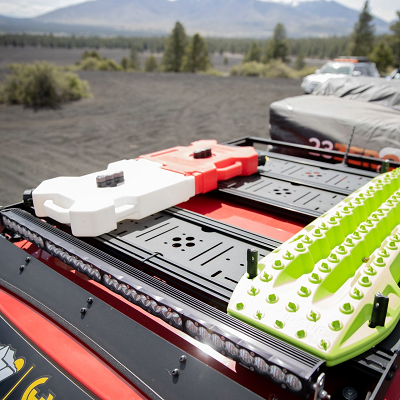
Roof Racks
Bed Racks
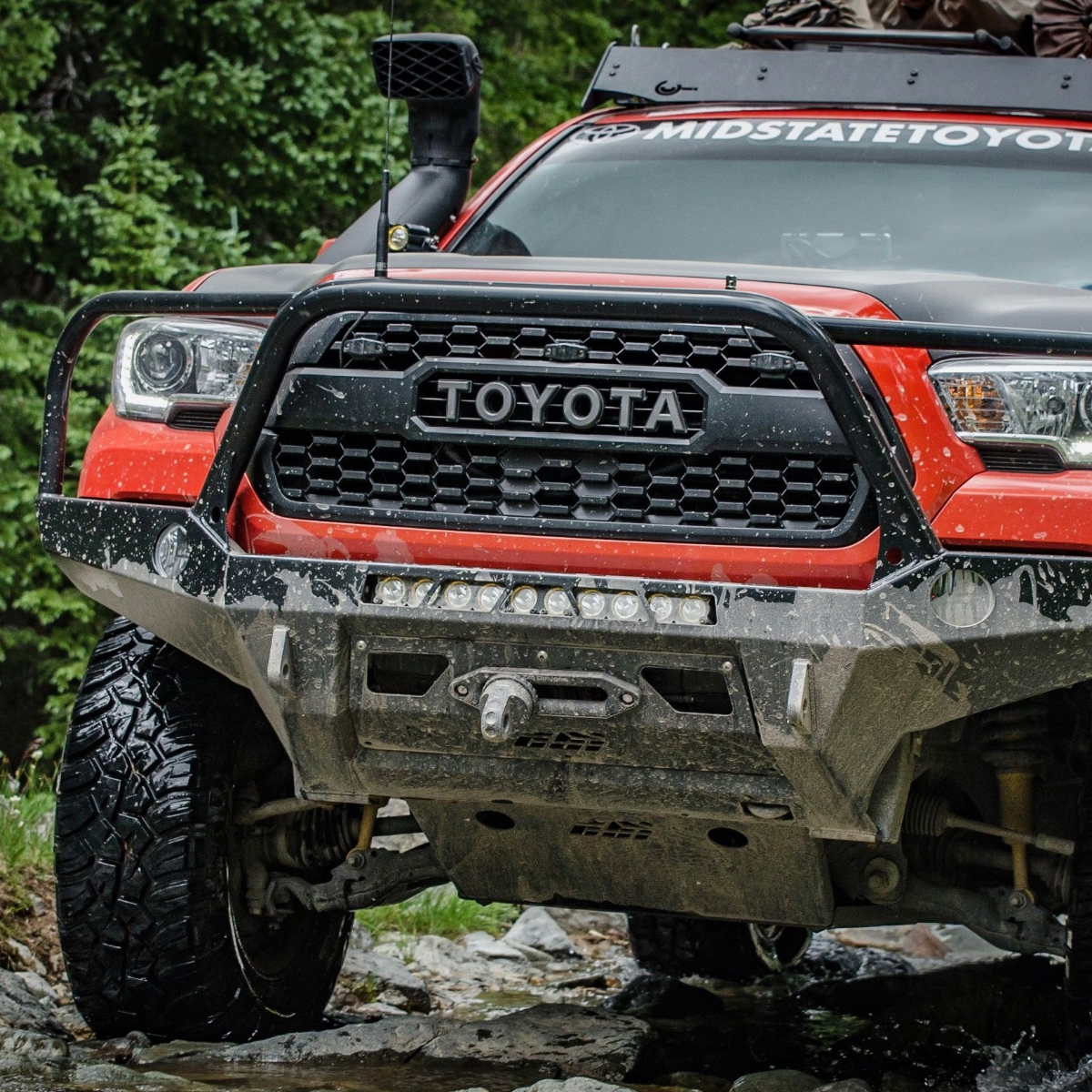
Front Bumpers
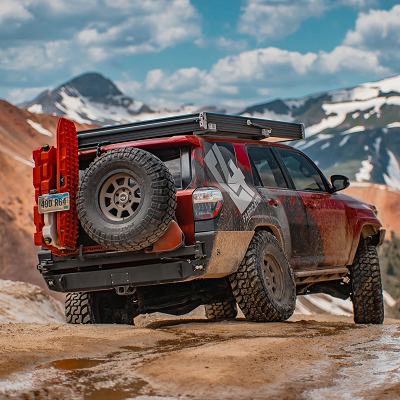
Rear Bumpers
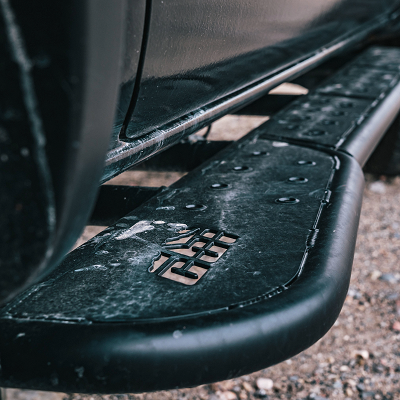
Rock Sliders
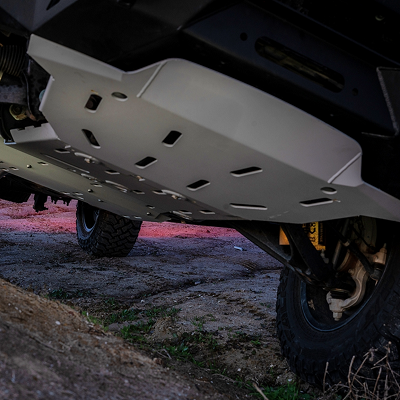
Skid Plates
June 13, 2025 7 min read
After seven years of running various lift configurations on my Toyota 4Runner, I've learned that the decision to lift isn't as straightforward as many new members to the 4Runner community might think. The question "Is a lift kit worth it?" depends entirely on how you actually use your vehicle and what you're willing to sacrifice for improved capability.
Let me share what I've discovered through real-world testing, plenty of mistakes, and conversations with countless other 4Runner owners about whether lifting your truck makes sense.

A 4Runner lift kit raises your vehicle's ride height by replacing or modifying suspension components. Unlike simple spacer lifts that just add room between existing parts, quality suspension lift kits replace key components like springs, shocks, and sometimes control arms to properly support the increased height.
The lift allows you to fit larger tires, increases ground clearance, and improves approach and departure angles for off-road obstacles. However, it also fundamentally changes how your Toyota 4Runner drives, handles, and performs in various conditions.
There are several types of lift kits available, from basic coil spacers to complete mid-travel systems. The type you choose will depend on your budget, intended use, and how much change you're comfortable with in your vehicle's characteristics.
The most obvious benefit is additional ground clearance. My 3-inch lift added crucial room between the frame and obstacles, allowing me to tackle trails that would have required careful navigation with the stock setup. This makes a huge difference when navigating rocky terrain or deep ruts.
Lifting your 4Runner improves the angles at which you can approach and leave obstacles without scraping bumpers or underbody components. I've found this particularly valuable on steep trail entrances and when climbing over logs or rocks.
Let's be honest, lifted 4Runners look great. The aggressive stance and ability to run larger tires give the vehicle a commanding presence. I can now fit 33-inch tires without rubbing issues, opening up plenty of tire options for different terrain types.
Quality lift kits often include longer-travel shocks and modified suspension geometry that allows better wheel articulation. This means better traction when one wheel is in the air, as the suspension can cycle through more movement to keep tires in contact with the ground.
A lift opens up numerous accessories and modification options. You'll have room for skid plates, different bumper styles, and various tire combinations. The flexibility to continue building your 4Runner is part of what makes lifting appealing to many owners.
Lift kits come with a lot of changes, some not for the better, if you don't need them. Here are a couple of things to think about.
Increased Wear on Suspension and Steering Components. This is the reality nobody wants to discuss in forums, but lifting your 4Runner will increase wear on CV joints, tie rods, and other steering components. The changed angles put additional stress on these parts, leading to more frequent maintenance and replacement costs.
Higher Center of Gravity. A lifted vehicle has a higher center of gravity, which affects handling and increases rollover risk. Highway driving feels less stable, especially in crosswinds or when passing large vehicles. The change is noticeable and requires adjustment in driving habits.
Cost of Full Setup. A proper lift isn't just about the kit itself. You'll likely want larger tires, potentially new wheels, alignment work, and possibly additional modifications to address issues that arise. The total cost can easily reach $5,000+ when everything is factored in.
MPG Impact. Larger tires, increased wind resistance, and additional weight all hurt fuel economy. I lost approximately 2-3 MPG with my setup, which adds up significantly over time. This is an ongoing cost that many people don't fully consider before making the purchase.
Alignment and Ride Quality Issues. Even with professional installation, achieving proper alignment can be challenging with lifted vehicles. Some setups may require aftermarket alignment cams or other modifications. Ride quality often changes too, sometimes becoming harsher or causing new vibrations.
After years of reading forum threads and talking with other 4Runner owners, the consensus is mixed but generally positive among those who actually use their vehicles off-road. Weekend warriors who primarily drive on pavement often question their decision after experiencing the daily driving compromises.
Serious off-road enthusiasts consistently report that the right lift kit was worth the investment and trade-offs. However, many wish they had researched more thoroughly and chosen components better suited to their actual use rather than just picking the most popular options.
The biggest mistake I see new members make is choosing lift height based on looks rather than function. A 6-inch lift might look impressive, but it comes with significant compromises that many daily drivers aren't prepared to accept.
You should consider a lift if you regularly encounter ground clearance limitations during off-road adventures, need room for larger tires for specific terrain types, or have specific performance goals that require the increased capability.
You probably shouldn't lift if your 4Runner is primarily a daily driver with occasional light trail use, you're not prepared for increased maintenance costs and complexity, or you're thinking about it mainly for appearance reasons without understanding the compromises.
The decision depends on an honest assessment of how you actually use your vehicle versus how you think you might use it in the future.
Budget Lift Kits: $800-$1,500 (basic spacer lifts or entry-level suspension lifts)
Mid-Range Systems: $2,000-$4,000 (quality suspension lifts with matched components)
Premium Setups: $4,000-$8,000+ (high-end systems like Fox, ICON, or complete long-travel kits)
Add installation costs ($500-$1,500), alignment ($100-$200), larger tires ($800-$2,000), and potential additional modifications, and you're looking at a significant investment.
Want to lift purely for the looks? Westcott Designs offers excellent preload collar lift systems that maintain good ride quality while providing the lift many 4Runner owners want. Their kits are designed specifically for the Toyota platform and offer a good balance of performance and street manners.

I recommend Dirt King a lot, they just get it, but when it comes to lift kits, their MT PreRunner Kit is something to consider. These are built specifically for high-speed off-road environments. This mid-travel system features boxed lower control arms, extended upper control arms, and heavy-duty tie rods designed to withstand harsh conditions while improving suspension geometry.

The kit provides 2-3 inches of lift with increased wheel travel and compatibility with long-travel shocks for maximum performance tuning.
While known for their control arms, they also make the Dominator preload system, which works like Westcott's preload collar. These are made from CNC-machined 6061 billet aluminum and are very easy to install and like with Westcott, you'll expect to maintain street manners with this system.

This has been the gold standard for many 4Runner owners, offering well-engineered systems with excellent ride quality and durability. Their kits are designed for loaded touring and provide good all-around performance.

This Australian company with its 70+ years of experience is something to look out for. They're known for kits that prioritize comfort without sacrificing capability. Their extensive selection allows you to built your kit yourself, which allows for precise load matching, making them ideal for daily drivers who want improved off-road performance with maintained ride quality.

Icon delivers California racing technology through their proprietary Delta Joint systems and digressive valving designed for maximum performance. They're one of the more premium options, you can expect high-quality components, from billet aluminum or tubular control arms to high-performance shocks with external reservoirs.
They're known for German Formula 1 engineering but delivers balanced performance at accessible pricing. Their Pro-Truck systems only start at around a grand and feature shot-peened Hi-Ten springs with a limited lifetime warranty, providing the best value proposition for motorsports-quality components.

Before committing to a full suspension lift, consider these alternatives:
Leveling Kits like Westcott Designs' kits can provide 1-2 inches of front lift to level the 4Runner's factory rake and allow slightly larger tires without the complexity and cost of a full lift.
Air Suspension or Adjustable Shocks offer the ability to raise or lower the vehicle as needed, providing versatility for different driving conditions.
Tire Size and Wheel Offset Changes can improve ground clearance and appearance without modifying suspension components. Larger diameter tires effectively raise the vehicle, while proper wheel offset can improve the stance.
After years of running lifted 4Runners and helping others make this decision, I believe a quality lift kit can be absolutely worth it - but only if you choose the right components for your actual needs and understand the compromises involved.
The key is being honest about how you'll use your vehicle and choosing components accordingly. A weekend trail rider has very different needs than someone planning serious rock crawling or desert racing. Don't let forum discussions or social media influence you into building a truck that doesn't match your actual use case.
If you decide to move forward, invest in quality components from reputable manufacturers, have the work done professionally, and budget for the additional modifications and maintenance that will inevitably follow. A well-executed lift can transform your 4Runner's capability and provide years of enhanced off-road performance, but it's not a decision to make lightly or without proper research.
Will a lift kit void my 4Runner's warranty?
Lifting your vehicle can potentially void warranty coverage for related suspension and drivetrain components. Document everything and understand the risks before proceeding with modifications.
Can I install a lift kit myself?
While possible for experienced mechanics, proper installation requires specific tools and knowledge. Professional installation is recommended for safety and to avoid expensive mistakes.
How much lift do I actually need?
Most 4Runner owners find that 2-3 inches provides the best balance of capability and daily drivability. More lift looks impressive but comes with significant compromises for street driving.
Will lifting my 4Runner affect its ability to tow?
Yes, lifting can affect towing stability and may require additional modifications like sway bars or weight distribution systems. Consider your towing needs before lifting.
Do I need to regear my differentials after lifting?
If you're running significantly larger tires (33+ inches), regearing may be beneficial to restore performance and fuel economy, though it's not always necessary depending on your driving style.
Comments will be approved before showing up.
Sign up to get the latest on sales, new releases and more …